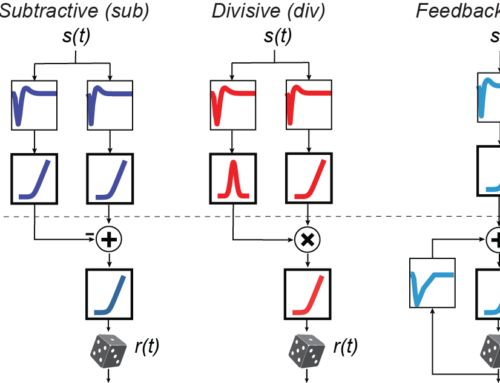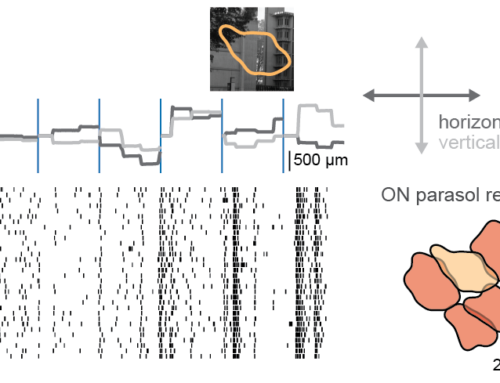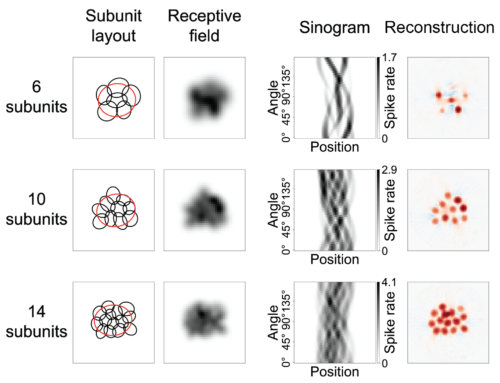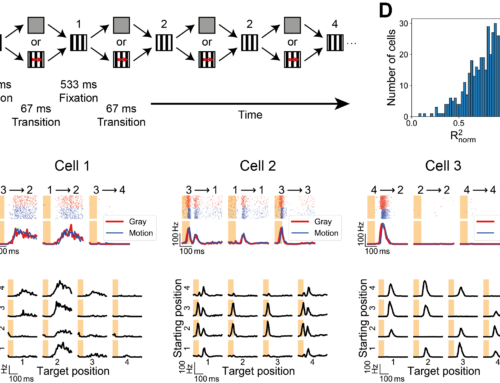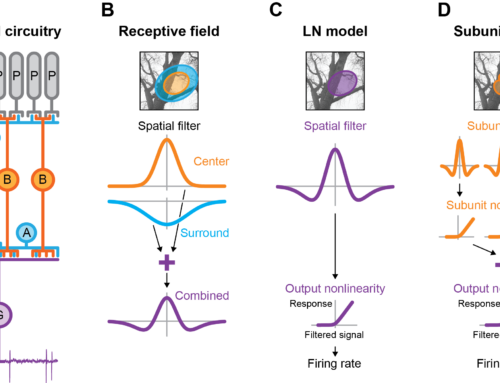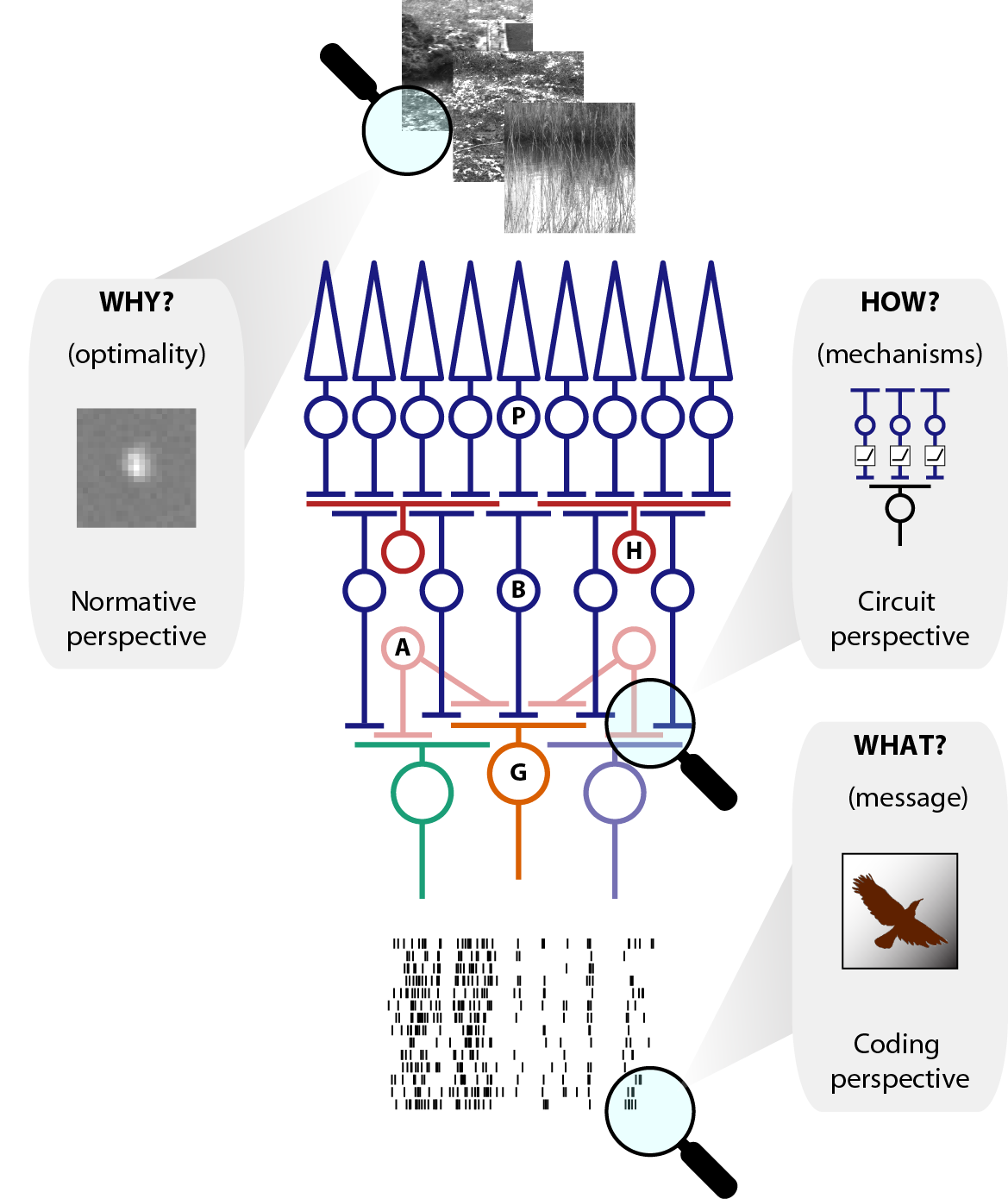
Retinal encoding of natural scenes.
An ultimate goal in retina science is to understand how the neural circuit of the retina processes natural visual scenes. Yet most studies in laboratories have long been performed with simple, artificial visual stimuli such as full-field illumination, spots of light, or gratings. The underlying assumption is that the features of the retina thus identified carry over to the more complex scenario of natural scenes. As the application of corresponding natural settings is becomingmore commonplace in experimental investigations, this assumption is being put to the test and opportunities arise to discover processing features that are triggered by specific aspects of natural scenes. Here, we review how natural stimuli have been used to probe, refine, and complement knowledge accumulated under simplified stimuli, and we discuss challenges and opportunities along the way toward a comprehensive understanding of the encoding of natural scenes.
